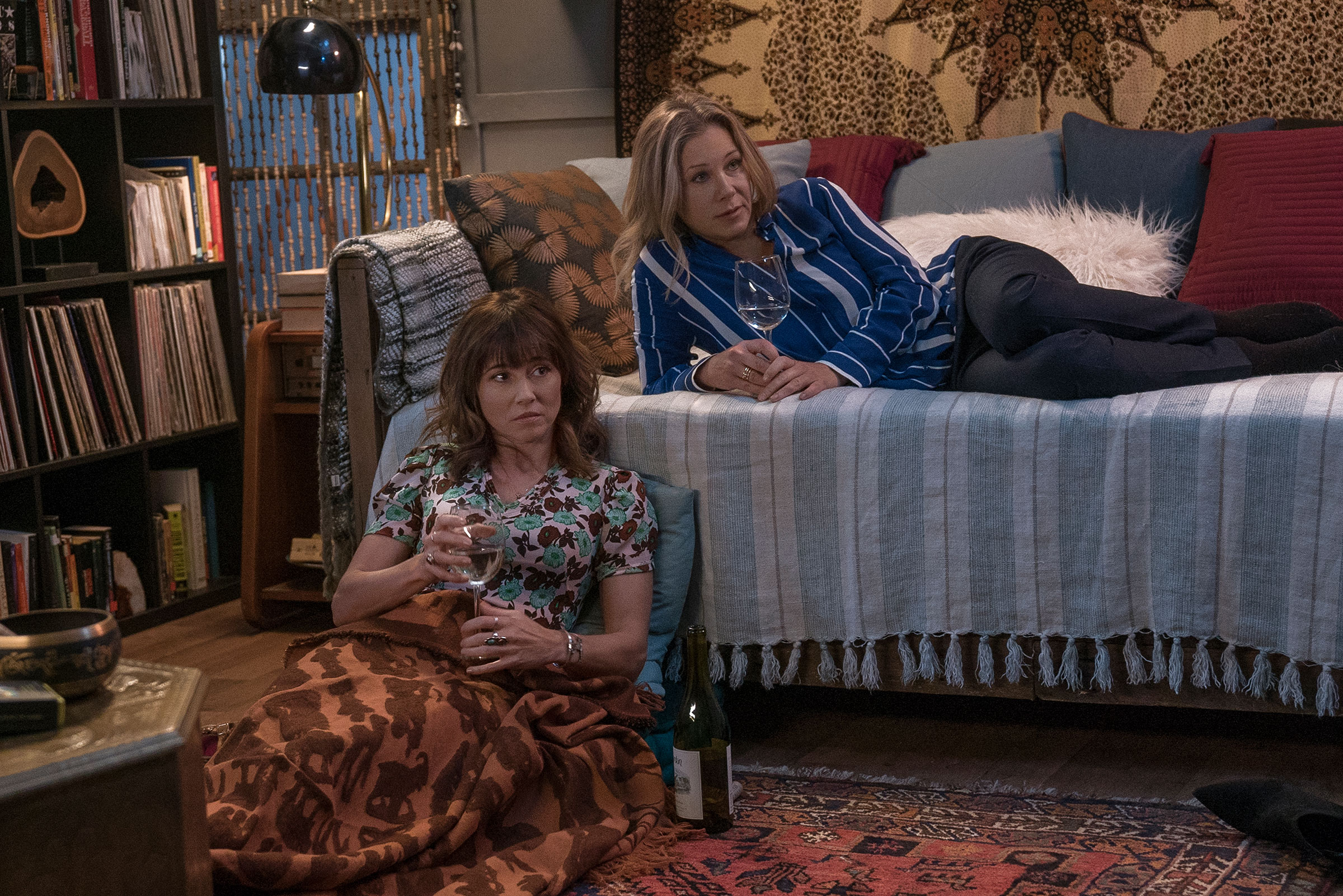
“Wherever Judy goes, chaos tends to follow.” So says James Marsden in the Netflix black comedy Dead to Me. Taken together, his utterance (an early contender for my own epitaph) and the fact that a long list of embargoed spoilers prevents me from even writing his character’s name illustrate much of this addictive new show’s appeal. The story packs big twists into each half-hour episode–most of them driven by the kind but unmoored Judy (Linda Cardellini), who’s constantly ratcheting up the entropy.
Created by Liz Feldman, a writer and producer of the broad CBS sitcom 2 Broke Girls, Dead to Me makes for a much sharper series about an unlikely friendship between two women. An uptight California real estate agent and mom of two boys, Christina Applegate’s Jen has recently lost her husband Ted in a hit-and-run. Unable to control her rage at the unknown driver and sluggish police investigation, she turns to a bereavement support group.
It’s there that she meets Judy, another grieving 40-something, whose hippie calm soothes Jen’s anger. Judy soon moves into her friend’s guesthouse, becoming the adult confidante and surrogate second parent Jen so desperately needs.
But what initially appears to be a gentle dramedy about an odd couple healing together soon becomes a tart thriller fueled by the many secrets Judy, Jen and the people who surround them are holding inside. If some of these lies are hard to swallow–and Feldman teases the biggest bombshell far more often than is actually effective–the slow pace at which the deceptions reveal themselves matches the speed at which we get to know the characters. Informed by Jen and Judy’s superficial brand of feminism (“Don’t be a woman who blames the woman,” one scolds the other), the dialogue rings true. Even better is the chemistry between Cardellini and Applegate, ideal foils who balance keen comic instincts with raw emotion.
As the show suggests, we tend to see other people not as they are but as we need them to be, constructing elaborate fictions to convince ourselves that we’ll never get hurt by the people we love. It’s a depressing truth about relationships of all kinds–and Cardellini and Applegate mine it richly in this absurdist caper.
More Must-Reads from TIME
- How Donald Trump Won
- The Best Inventions of 2024
- Why Sleep Is the Key to Living Longer
- Robert Zemeckis Just Wants to Move You
- How to Break 8 Toxic Communication Habits
- Nicola Coughlan Bet on Herself—And Won
- Why Vinegar Is So Good for You
- Meet TIME's Newest Class of Next Generation Leaders
Contact us at letters@time.com